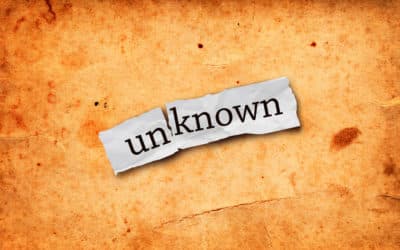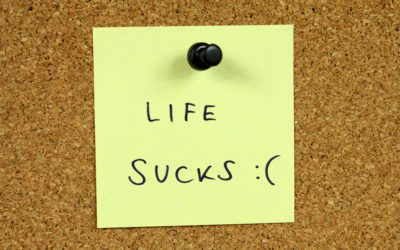Over the past eight months, I’ve been working with a live and virtual group exploring the nature and catalyzation of genius. Not the “high IQ” kind of genius that is often associated with both prolific accomplishment and social awkwardness, but the kind of innate, unlearned genius that fits more aptly with this definition:
gen·ius
ˈjēnyəs
noun
1: an attendant spirit of a person or place
2: a strong leaning or inclination
3: a peculiar, distinctive, or identifying character or spirit
The hashtag part of the exploration came out of a running joke at my company. Any time one of us works something out that’s outside of our normal sphere of expertise, which in my case can be anything from making a spreadsheet to sorting out a tech issue at an for an event, we’re rewarded (or reward ourselves) with an exclamation of “#geniusisinfinite”.
But in exploring things further, it becomes obvious that genius – the attendant spirit of intelligence and innovation that lives in all of us – has more than one critical characteristic…
1. #geniusisinfinite
“To see a World in a Grain of Sand
And a Heaven in a Wild Flower
Hold Infinity in the palm of your hand
And Eternity in an hour”
-William Blake
For a number of years, I worked with and shared a concept called “the zone of genius” as part of my coaching. The idea behind it is a sound one – that we all have certain things that come so easily to us that we don’t even recognize them as genius in action, either assuming that “everyone can do that” or that it’s no big deal because it takes no particular amount of focused effort to make it happen. As Einstein reputedly said, “Everybody is a genius, but if you judge a fish by its ability to climb a tree, it will live its whole life believing it is stupid.”
The goal in that work was to first identify those things that are in our zone of genius and then work towards spending the vast majority of our time doing them, leaving as much as everything else as we can to be taken care of by others.
It’s an idea that people grasp quickly and gives them something clear to work with. The problem that eventually emerged for me was that it ultimately shrunk our worlds instead of expanding them.
For example, DIY projects were always cleanly placed in my “zone of incompetence” because I was terrible at them and had no interest in getting better. Yet in overcoming my reluctance for hanging a blind in my daughters’ bathroom or rebuilding a stone wall in my parent’s driveway, I got as much pleasure from those projects as I do from crafting a sentence for a blog post or taking a new book from inception to birth.
Our lack of love, creativity, and facility around certain things seem inherent in the things or activities themselves, but it turns out that when we bring love and creativity to them, our genius begins to emerge. In a remarkably short time, a previously untapped facility begins to develop.
The more I look at it, the more it seems to me that genius is infinite; we create limitation through our belief in imaginary 'zoning laws'.Click To TweetWhich points us to a second hashtag…
2. #geniusisimpersonal
“We dance round in a ring and suppose
But the secret sits in the middle and knows.”
-Robert Frost
In a social economy where genius is seen as a commodity, the idea of it being impersonal can be considered almost subversive. But the point isn’t that an individual’s unique expression of genius is impersonal; rather that genius itself is available to everyone regardless of their social class, IQ score, education levels, or what they’ve accomplished to date.
You and I have access to the same creative intelligence that allowed Mozart to compose his first symphony at the age of eight and Einstein to publish his theory of special relativity at the age of twenty six. In fact, we are made of it. The same intelligence we see in our bodies, maintaining stasis and allowing us to function in a wide variety of environments, is functioning in our minds as well.
Like gravity, ever present but knowable only by its effects, we see the presence of genius most easily in those moments where we think we’re in over our heads. Suddenly, whether through a gradual drip or sudden flash of insight, we know what to do and begin moving forward with renewed curiosity and ease.
Which leads us to a third hashtag:
3. #geniusisresponsive
“Take the first step, no more, no less.
And the next will be revealed.”
-Ken Roberts
My friend and colleague, Dr. George Pransky, once jokingly said to me that after watching an episode of Law and Order, he realized he would have made an excellent bank robber.
“After all”, he explained, “robbing banks is all about coming up with innovative solutions to some pretty advanced problems, and I’d be good at that because I don’t get downhearted when it takes a while for something new to come to mind. I know if I just keep at it, something will come to me that no one had ever thought of before.”
Later in the show, when the police tracked down the not quite as clever as they thought bank robbers, George said that he reckoned he would have made an excellent detective.
“I mean”, he went on, “being a detective is all about just following the clue in front of you without having any idea of where it will take you or even if it’s relevant. It just takes patience and trust that if you stick with it, new things will occur to you and new evidence will come to light. And I’ve already learned to trust that in my own work as a psychologist with my clients.”
As the show came towards it conclusion and the trial sequence was underway, George said he was pretty sure he would have made an excellent trial lawyer.
“It seems to me that in order to be persuasive you have to be able to listen really well until you have a real sense of how the world looks to someone. Then you can speak to them in a way that will make sense to them, knowing they’re never more than one thought away from a completely different perspective. I would find it incredibly fun to be with people in that way, and to just stay at it until at least one of us saw something new that changed the way we thought about the case.”
I laughed, as I was meant to, but I did also see a larger point:
The moment we fully engage our minds on a problem, challenge, or goal, we begin to get new thinking, fresh ideas, and notice previously unseen possibilities.
We all have examples of that in our own lives – times where we found ourselves in situations seemingly beyond our capacities and were surprised and delighted by what came to mind. Most people love those experiences, which makes it odd that we don’t spend more time willingly throwing ourselves in over our heads.
Except that most people don’t really get the fourth hashtag…
4. #geniusisreliable
“‘In this world nothing can be said to be certain, except death and taxes.”
-Benjamin Franklin
The reason, or so it seems to me, that we so rarely think to turn to our innate genius in everyday life is that we can’t see the chain of cause and effect between our aiming ourselves in a direction and the innovation and creativity that inevitably emerge when we do. Consequently, we don’t trust that the mind just works that way and we look for something “more reliable”, like best practices, brainstorming tools, or intuition accessing strategies.
But if genius is infinite, impersonal, and responsive, then it must also be always available.
In Creating the Impossible I wrote the following simple rule of thumb:
As you begin moving in the direction of your dreams, the emergence of fresh new thinking and unexpected synchronicities (i.e. “luck”) is 100% reliable and 98% unpredictable.Click To TweetThe more we see this, the more we rely on it; the more we rely on it, the more reliable we recognize it to be. But we may never fully trust it simply because of the unpredictable range of forms it takes.
As one engineer at an aerospace company whose team had learned to rely on innate genius as their ultimate problem solving tool said, “Every time we give up on working things out with our intellect and turn them over to the deeper mind, it always works – but somehow even after all these years we’re always still surprised that it works.”
Contemplating why genius can show up in such unpredictable ways points us to our final hashtag…
5. #geniusisalive
“If you open yourself to the Tao,
you are at one with the Tao
and you can embody it completely.
If you open yourself to insight,
you are at one with insight
and you can use it completely…
Open yourself to the Tao,
then trust your natural responses;
and everything will fall into place.
-Lao Tzu
When I talk about innate genius with my clients, I often use the term “real time responsive intelligence”. It’s a kind of living wisdom which is always available to us in the moment but only rarely accessible when trying to look too far into the past or plan too far ahead into the future. To put it more colloquially, it’s easy to eat what’s on our plate now but genuinely impossible to eat what was on our plate yesterday or what we think will be on our plate tomorrow.
The less in touch we are with this living wisdom, the more it seems like we need rules and regulations, five year plans and seven step strategies. The more in touch with it we are, the more we act appropriately in the moment and the more things seem to work out as if by design.
In sharing this at a business conference in a room full of CEO’s and entrepreneurs, someone raised their hand and said “If we get things wrong in our business there are very real world consequences, but It sounds like you’re telling us we should just fly by the seat of our pants. Isn’t that irresponsible?”
My response was only slightly tongue in cheek.
“I’m not saying that you should fly by the seat of your pants; I’m saying that the seat of your pants has wings. “Click To TweetIn other words, the mind is made to work beautifully, creatively, and responsively in real time. The energy and intelligence behind life is the very thing our lives are made of. And to use the mind the way it’s designed to work is the most responsible use of the mind there is.
With all my love,![]()










